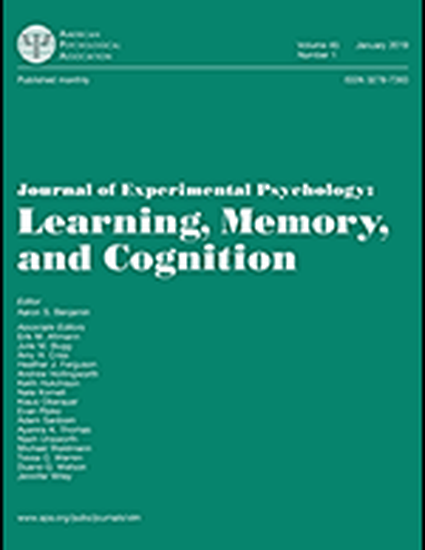
Article
Word-context associations in episodic memory are learned at the conceptual level: Word frequency, bilingual proficiency, and bilingual status effects on source memory
Journal of Experimental Psychology: Learning, Memory and Cognition
(2019)
Abstract
Three source-memory experiments were conducted with Spanish–English bilinguals and monolingual English speakers matched on age, education, nonverbal cognitive ability and socioeconomic status. Bilingual language proficiency and dominance were assessed using standardized objective measures. In Experiment 1, source was manipulated visuo-spatially, in Experiment 2, source was manipulated temporally, and in Experiment 3, source was manipulated by presenting stimuli in different modalities. Bilingual source discrimination was more accurate for low-frequency words than for high-frequency words, but it did not differ for the more fluent and less fluent languages (L1 and L2, respectively). These results contrast with the L2 advantage observed in item recognition (Francis & Gutiérrez, 2012; Francis & Strobach, 2013), adding to evidence that the bases of performance for item and source memory differ. The dissociation of word frequency and language effects indicates that word–context associations are made at the conceptual level rather than the word-form level. Bilinguals exhibited more accurate source discrimination than monolinguals, both under intentional and incidental encoding conditions, indicating that this effect cannot be explained entirely by differences in encoding strategies. We reason that relative to monolinguals, bilinguals more efficiently encode associations between word concepts and contexts or other types of information that do not convey meaning preexperimentally.
Keywords
- source monitoring,
- context memory,
- list discrimination,
- associative memory,
- bilingualism
Disciplines
Publication Date
October, 2019
DOI
10.1037/XLM0000678
Citation Information
Wendy S. Francis, E. Natalia Strobach, Renee M. Penalver, Michelle Martínez, et al.. "Word-context associations in episodic memory are learned at the conceptual level: Word frequency, bilingual proficiency, and bilingual status effects on source memory" Journal of Experimental Psychology: Learning, Memory and Cognition Vol. 45 Iss. 10 (2019) p. 1852 - 1871 Available at: http://works.bepress.com/renee-penalver/3/
